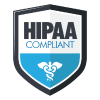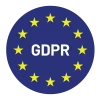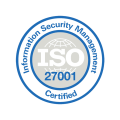
Can Technology Prevent Healthcare Provider Burnout?
Can Technology Prevent Healthcare Provider Burnout?
By: Chris Turner
Healthcare provider burnout is a widespread problem that affects many medical professionals. Long hours, high patient loads, and the emotional toll of caring for sick and dying patients can lead to physical and mental exhaustion, decreased job satisfaction, and even depression. Additionally, healthcare providers often feel stressed due to administrative tasks. These tasks can create an extra burden on already overworked medical professionals.
Thankfully, new technology has emerged as a potential solution to help prevent healthcare provider burnout. In this blog, we’ll explore how healthcare provider burnout is on the rise, what leads to burnout, and how HealthBook+ has the potential to help reduce burnout in healthcare providers.
Healthcare provider burnout is a growing problem
The healthcare field has never been stress-free, but the COVID-19 pandemic has accelerated provider burnout at an alarming rate. Nearly 2,500 U.S. physicians responded to a survey conducted by the AMA, the Mayo Clinic, Stanford University School of Medicine, and the University of Colorado School of Medicine. Researchers found that 62.8% of physicians had at least one symptom of burnout in 2021—up from 45.5% in 2011.
The accelerated burnout rate is not limited to physicians—nurses are feeling the burn, too. A 2021 American Nurses Foundation survey found that a staggering 81% of the 22,000 surveyed nurses expressed exhaustion, 71% felt overwhelmed, and 65% reported feeling anxious.
Research shows that long-term burnout has a negative impact on physicians. They often complain of feeling tired, exhausted, fatigued, inattentive, and irritable. Burnout symptoms can also put healthcare providers at increased risk of car accidents, even after adjusting for fatigue. Physician burnout could contribute to increased stress, disruptive behavior, mood disorders, and correlation with depression.
Because of this increased stress, the odds of substance abuse also increase. Additionally, physicians are at an increased risk of suicide (28 to 40 per 100,000) compared to the general population (12.3 per 100,000), especially among specialties like emergency, primary, and preventive medicine. Obviously, all of this has a negative impact on healthcare providers’ lives both professionally and personally.
The toll on providers’ mental health is significant enough, but provider burnout also has serious consequences for healthcare consumers. Many healthcare providers are considering leaving their professions, with 66% of nurses considering leaving and 1 in 5 physicians saying it’s likely they’ll leave within the next two years. The increase of physicians leaving has a real impact on healthcare costs: when a physician leaves an organization, it can result in a loss of $500,000 to $1 million in training and recruiting a new physician.
Why is provider burnout so high?
There are many reasons that the rate of healthcare provider burnout is increasing: heavier workloads, longer hours, understaffed hospitals, and high provider-to-patient ratios can all play a part in feeling burned out. But one of the main causes of healthcare provider burnout is the high administrative burden associated with patient care. According to the National Library of Medicine, a survey of 4,720 U.S. physicians working 20+ hours a week in direct patient care revealed that the average physician spent 16.6% of their working hours on administrative tasks. Furthermore, the research showed more extensive use of electronic medical records was associated with a greater administrative burden.
The problem with (traditional) electronic health records (EHRs)
Electronic health records (EHRs) have become an essential component of modern healthcare, but they’re not without their flaws. While they allow providers to access patient data quickly and efficiently, if the interface is not designed intuitively, EHRs can quickly become more of a burden than a boon.
In a pre-pandemic study aimed to find the EHR factors that were associated with physician burnout, these were the most prevalent EHR design concerns:

EHRs were not initially designed for physician’s ease of use—they were primarily designed for billing and reimbursement purposes. Since they were not designed with physicians and other
users in mind, many providers say their EHRs are clunky, poorly designed, hard to navigate, and cluttered with superfluous detail. Poorly designed interfaces can lead to data bottlenecks, making things more difficult for the provider.
HealthBook+: a comprehensive solution to help reduce provider burnout
HealthBook+ is an early health identification and guided mental health platform that streamlines clinical workflows, reduces administrative burdens, and enhances patient care. Our simple-to-use, digital-first care platform puts your employees in charge of their mental health journey by using advanced AI to suggest their next best health action.
In addition to addressing the pressing issue of administrative burden, HealthBook+ acts as a preventative mental health solution to proactively tackle burnout symptoms in healthcare workers. Our platform collects healthcare data from a variety of sources like labs, imaging studies, appointment notes, wearables, self-reporting, and prescriptions. This secure, protected information is accessible to the owner through a smartphone, tablet, or computer. Using this data, HealthBook+ leverages advanced AI to help identify mental health conditions early.
Take Alex’s story, for example:
Alex is a nurse working at a hospital in a bustling city. Alex has been on the front lines of the pandemic and has witnessed the pain and suffering that COVID-19 can cause. From the start, Alex has been dedicated to providing the best care possible for patients, even if that means putting his own health at risk.
As the pandemic continued to rage on, Alex became increasingly concerned about his own well-being. He knew that the stress of his job was taking a toll on his mental health, and he worried that he was neglecting his physical health as well. Even after the pandemic began to feel more under control, Alex was still struggling.
Alex linked his smartwatch to the HealthBook+ app, which is designed to help healthcare professionals like him confidentially keep tabs on their mental and physical health. His smartwatch tracked changes in his sleeping habits, and fluctuations in heart rate. He used the app to keep notes on how he was feeling. At first, Alex was skeptical—he didn’t think an app could really help him manage the stress and anxiety of his job. But as he started using HealthBook+, he began to see the benefits. Alex began to receive alerts that he was showing signs of burnout and was at risk of developing depression. The app encouraged him to reach out to a mental health provider.
After receiving the alert, Alex accessed the AI-driven tools to learn more about care options. HealthBook+ also gave him access to a telehealth partner to help develop a plan to improve his mental health which included speaking to a peer coach.
Alex still faces job-related challenges and stressors, but thanks to HealthBook+ he now has the tools and resources needed to stay healthy and focused. Alex’s story is a great example of how early intervention can help avoid a more serious mental health crisis.
As you can see, HealthBook+ is more than just a source for EHRs—it’s an easy-to-use, digital-first care platform that guides the user’s next best health action using advanced AI while keeping data private and secure.
Our platform provides private, comprehensive, and personalized mental healthcare guidance for healthcare professionals and their patients. By leveraging our platform’s data and suggestions, patients can understand their next best health action to improve their overall well-being for preventative, acute, and chronic health conditions. Our platform is designed to improve patient health, enhance the patient and provider experience, mitigate provider burnout, and reduce healthcare costs.
Another benefit of HealthBook+ is its ability to enhance collaboration and communication among healthcare teams. Healthcare providers have access to reliable, instant health checks and can easily share information with other healthcare providers without having to check multiple sources. The platform allows providers to share patient data securely and efficiently, reducing the need for multiple points of contact to coordinate care.
While technology alone cannot solve the problem of burnout, it can be a valuable tool to help support healthcare providers and improve patient care. By using HealthBook+, healthcare organizations can help to create a more efficient, effective, and satisfying work environment for their providers.
See how HealthBook+ can help you here: https://healthbookplus.ai/index.php/for-healthcare-companies/





